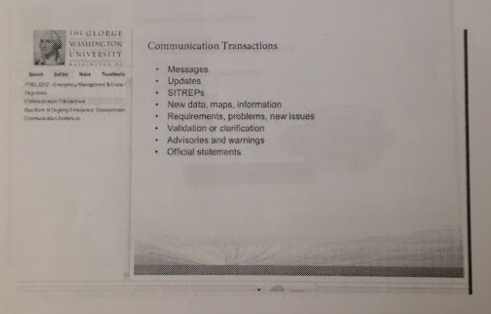You have /5 articles left.
Sign up for a free account or log in.
A group of former George Washington University students are challenging the idea that online degree programs -- specifically their own -- offer the same quality as face-to-face education.
Four graduates of the university’s online master’s degree program in security and safety leadership last week filed a class-action lawsuit in the District of Columbia Superior Court, saying the program doesn’t live up to its promise of being designed for an online setting and not a physical classroom.
The four students attended the program, which is also offered in a face-to-face format, between 2012 and 2013. Instead of “learning exactly what you learn in a brick-and-mortar classroom,” the students say in the complaint that the 16-month, 12-course program consisted of course readings without the context provided by an instructor or recorded lectures. They are suing the university for fraudulent and negligent misrepresentation, unjust enrichment and violation of D.C. consumer protection laws.
“The misrepresentations are designed to present the program as something that it is not: a credible, longstanding program, with courses and content specifically designed for the online learning environment,” the complaint reads. “In reality, at the time the plaintiffs applied for the online program, there were no graduates of the program and the ‘content’ mostly consisted of scanned-in PDFs of textbooks (with blurry pages and sentences cut off) and PowerPoint slides taken from the in-class courses, without any narration or explication.”
The case was first reported by The GW Hatchet, the university’s independent student newspaper.
The lawsuit targets an argument that colleges often make when they offer online and in-person versions of the same program. While the programs may differ in their mode of delivery, students can expect the same level of quality, colleges stress.
In addition to complaints about the content of the program, the students say the instructors were “consistently unresponsive,” gave feedback that “demonstrated a lack of attention and participation” and would not log in to the online portal for “several weeks at a time.” After being promised instructors who would “be actively involved in guiding and facilitating a student-centered education,” the students say their instructors were “hardly involved at all.”
The complaint includes several references to students who contacted the university to complain about the quality of the online program, including a May 2013 letter signed by 11 students to GWU's president, Steven Knapp. In the letter, the students said they felt “cheated out of the quality education that attracted [them] to GWU,” concluding, “What it is that we’re paying for, exactly?”
The university apologized at the time but has done “nothing to rectify the situation,” the complaint reads.
At an estimated $33,300, the online program is about $4,000 more expensive than the face-to-face program.
“In sum, plaintiffs were deceived into spending tens of thousands on tuition alone for a program that functionally required them to teach themselves the material,” the complaint reads. “They paid more than their peers who completed the same degree in a classroom, and yet received far less.”
The university has not yet responded to the complaint. In a prepared statement, Candace Smith, assistant vice president of media relations, defended the program. “Since the security and safety leadership program began in 2009, 341 students have graduated, and many have gone onto successful careers in the military, law enforcement and other government agencies,” she wrote.
A scheduling conference for the case is set for July 8.









